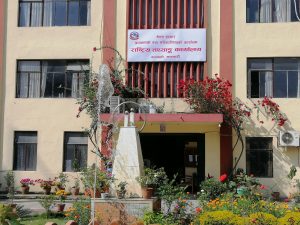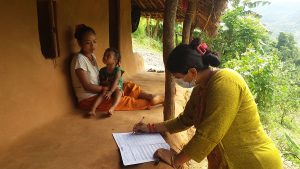
Recently I came to know that the Division Forest Officer in Morang and his assistant tested positive for coronavirus on August 5. The officer, who did not have any apparent travel history to the Covid-19-hit zone, had tested negative for the virus just five days before that.
Therefore, he and his near ones were shocked to know his report. Later, it was found that he had gone to Letang and Pathibhara of the district on August 1 for monitoring of a programme related to the scientific forest management programme. Although it is not confirmed, the investigators believe he might have contracted the virus during the visit. More than 100 people related to the forestry sector including members of community forest user group were present in a briefing after the completion of monitoring.
This is just a representative incident that we came to know about. There might be a lot of other cases which are unknown and out of media coverage. Although foresters are aware of the risk of Covid-19 at the workplace, they are working continuously from the very beginning of this pandemic regardless of their health concerns.
Being sensitive to the virus, we all are aware that the government of Nepal imposed a four-month-long lockdown from March 24 to July 21. During that period, the government decided to shut all offices, industries, transportation including national and international flights, schools, colleges, and universities. Only essential services like health, security, food supply, water supply, dairy, electricity, telecommunication, news and information, customs, quarantine, waste management were requested to make functional fulfilling the WHO health safety criteria. For other offices, the government made a provision to open only with limited essential staff, or if the office in-charge needs them urgently. All others were requested to stay home.

The government nowhere mentioned the forestry services would stay open. In order to motivate frontline workers during this Covid-19 pandemic, the government of Nepal has announced a fund worth Rs five million which would compensate members of the families of the frontline workers who die of Covid-19. The ‘frontline workers’ include health workers, security personnel, ambulance drivers, employees of local units and other individuals deployed to fight Covid-19. The forestry sector and people working in the sector are mentioned nowhere.
Since more than 44% of our land is covered by forests and about 90% of the rural population’s livelihood depends upon forests and forest-based productions, this is unfair.
As soon as the government announced the lockdown, people’s dependence on forests increased exponentially. Those who were using LPG or alternative fuel also began using firewood due to the fear of shortage and black marketing of LPG. They began to store LPG cylinders for future use. The demand for forest-based products shifted back to the condition it was two decades ago; the need of forest user groups is once again shifted to firewood collection than timber today. Thus, it resulted in the illegal felling and harvesting of trees. In order to control such activities, forest workers are required to constantly be around the locals, risking their health. They kept their services in the first place and their own health at the second by continuing their services.
A lot of youth working abroad have come back to Nepal as soon as the government announced the lockdown. They are likely to spend their time in recreational activities that might include pleasure hunting, ultimately leading towards increased illegal poaching and hunting of animals. Due to increased illegal harvesting of trees and poaching of wildlife, the responsible forest employees all over Nepal have stayed active to work voluntarily in order to conserve the forests and wildlife without waiting for government order. Therefore, they should be treated respectfully.
Forestry involves semi-military jobs also. They should also work closely with the communities. They have to go to the contact of local people every single day. This justifies forestry employees were at high risk of Covid-19.
Forest plays a vital role in overcoming rural livelihood challenges. Thus, the government of Nepal should think about dutiful and responsible forest officers, conservation officers and others who are engaged in forest and biodiversity conservation, patrolling to reduce illegal harvesting, hunting and poaching rather than focusing only on health workers, security personnel, ambulance drivers, employees of local units and other individuals deployed to fight Covid-19. It will boost the confidence and efficiency of the forestry sector employees to work during this pandemic situation. It is also essential to test all forestry sector employees who are in direct contact with the communities for coronavirus.
Neupane is a biodiversity conservation and wildlife management researcher.























